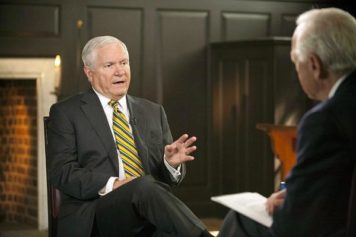There is growing international outrage over the killing of Syrian soldiers by rebels, with the United Nations labeling the execution as a “war crime.”
The killings were captured on video and viewed by the world, which saw the rebels executing Syrian soldiers who had already surrendered.
“Like other videos of this sort, it’s difficult to verify immediately in terms of location, who’s involved,” said UN human rights spokesman Rupert Colville at a news briefing. “We need to examine this carefully…But the allegations are that these these were soldiers who were no longer combatants. And therefore, at this point it looks very likely that this is a war crime, another one. Unfortunately, this could be just the latest in a string of documented summary executions by opposition factions as well as by government forces and groups affiliated with them, such as the shabbiha [pro-government militia].”
Buta rebel fighter in the region blamed the executions on a renegade group called the Salafi brigade that has become more influential in the area.
“Assad’s soldiers were inside a military camp in the town,” explained Abu Abdul Rahiem, a fighter in Jebal al-Zawiyia, “Fighters from the Salafi Dawood brigade overran the camp and captured the soldiers. Initially there were only ten of them so they could not take the soldiers captive, and had to kill them immediately. No trial could be held because the fighting was still going on. This is guerrilla warfare. The soldiers there included snipers who had shot four fighters from the Dawood brigade.”
“We do not wish to turn Syria into another Afghanistan, but we can’t stop these extremists groups,” the rebel fighter continued. “We are really worried about the future of Syria. We need weapons and media support, but there is nothing on the ground. They are tough fighters and when they get hold of soldiers, they kill them at once. They are getting more powerful and in in the future could start forcing people to follow sharia law. It is a big problem.”
The outrage over the killing come as Syrians have attacked the plan put forward by U.S. Secretary of State Hillary Clinton to create a new group of Syrian leaders who are more representative of fighters on the ground.
“There has to be representation of those who are on the front lines, fighting and dying today to obtain their freedom,” Mrs. Clinton told reporters during a trip to Croatia. “This cannot be an opposition represented by people who have many good attributes, but have, in many instances, have not been inside Syria for 20, 30 or 40 years.”
Hundreds of opposition figures are gathering in Doha, Qatar, next week to try to form such a group, urged by the United States. Mrs. Clinton said she had been heavily involved in planning the meeting, including recommending individuals and organizations to include in any new leadership structure.
“We’ve made it clear that the S.N.C. can no longer be viewed as the visible leader of the opposition,” Mrs. Clinton said, referring to the Syrian National Council. It can participate, she added, “but that opposition must include people from inside Syria and others who have a legitimate voice that needs to be heard.”
Although council members are likely to have up to one third of the seats on the new body, which is expected to have 35 to 50 members, Mrs. Clinton’s very public announcement could well be the council’s death knell. “The S.N.C. has been over with for a long time now; fighters only talk about it sarcastically,” said Khaled Youssef al-Aboud, a pilot in northeast Syria.
